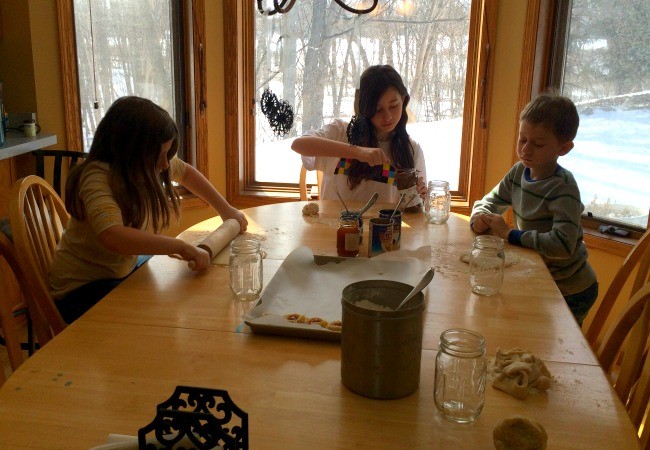I received a letter from a (hopefully) new friend. In it, she wrote words that screamed smart, thoughtful, and reflective. Disappointed in the way the Jewish role models in her life were doing Judaism, my sensitive new friend also held an aura of searching.
The pattern of searching for people and ways to emulate is common. I see it in my younger kids watching, always watching, their older sister. They copy her sense of humor, her sass, her warmth, and her fun. I also see it in the way they each look to their peers. One of my kids picks up the phrases and sayings and accents of her friends every time she’s with them.
Adults do this, too. When I’m around one of my friends, I’m more carefree, lax, and loose with my parenting. I seek her out when I know I need to lighten up. I suspect my kids seek her out when they think the same.
As a new teacher, wife, mom, and writer, I would turn to those who had been in each of these roles longer than I had to see how they did it, to learn how to do it “right.” There’s so much goodness to this. One of the secrets to leading a happy life is to surround yourself with good people, to purposefully place them by your side.
But I also think we spend so much time searching for other people’s approved ways and habits, that we lose sight of what’s really important—which is what’s right for us and, in the case of Judaism, for our families.
I’m not living the Jewish life I had always imagined, and I’m definitely not living the one my Safta or my Ima imagined for me.
With memories of the Holocaust and of hiding her Judaism, of there never being enough challah on the table, Shabbat held a sour taste in my Safta’s memories. But it’s one of my family’s favorite traditions.
My Ima’s favorite people speak Hebrew, have fond memories of living in Israel, and can make a mean schnitzel without a recipe in sight. I live in Minnesota with my raised-Catholic husband. My Hebrew speaking is weak and my accent is American. (I do, however, make a pretty mean schnitzel.)
When my mom, my Ima, would visit our home, I would feel insecure that my secret would be out: I don’t do Judaism the way she taught–and perhaps expected–me to. However, a few years ago, during one of her visits, the two of us went for a walk and she said something that lifted my worries and, I think, is what I’d like to say to my new (searching) friend. My Ima said, “I’m proud of you for finding a way to be Jewish that works for you guys.”
And she was right. All the parenting and education and relationship and writing and Judaism books in the world couldn’t make me do things “right.” They were good information, but they didn’t fit the life I was leading. And eventually I had to stop reading and searching and hoping for right and just living.
Jason’s and my unique situation of raising a Jewish family outside of a Jewish community forced us to just dive in and do it. And while we certainly don’t live a textbook Jewish life, we do Judaism well for our family. My kids can braid beautiful challahs and pinch hamantaschen corners that stick. They revere having Friday nights that are different from the rest of the week. They can discuss questions without answers. They know that more often than not, the value is in the dialogue.
My new friend wondered if I could be a good Jewish role model to her and this is my answer. I could be one of the good people you surround yourself with; in fact I’d be honored to be. But I think what’s way more important, is to trust yourself to be the role model you’re searching for. You know what lights your (Jewish) heart. Live it.
For an amazing resource on different ways of doing Judiasm, I recommend a book from my searching days, Stefanie Pervos Bregman’s Living Jewishly.


